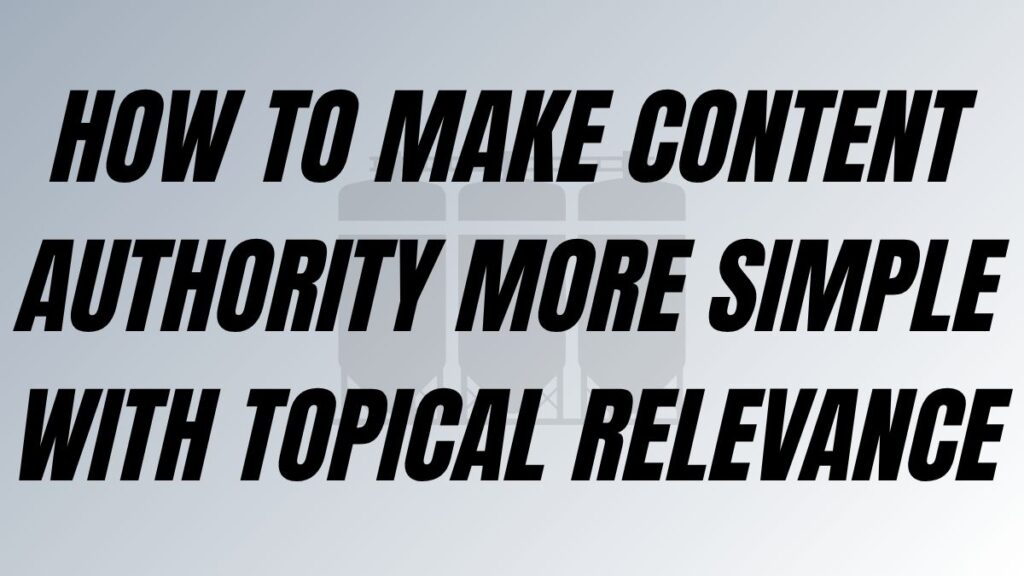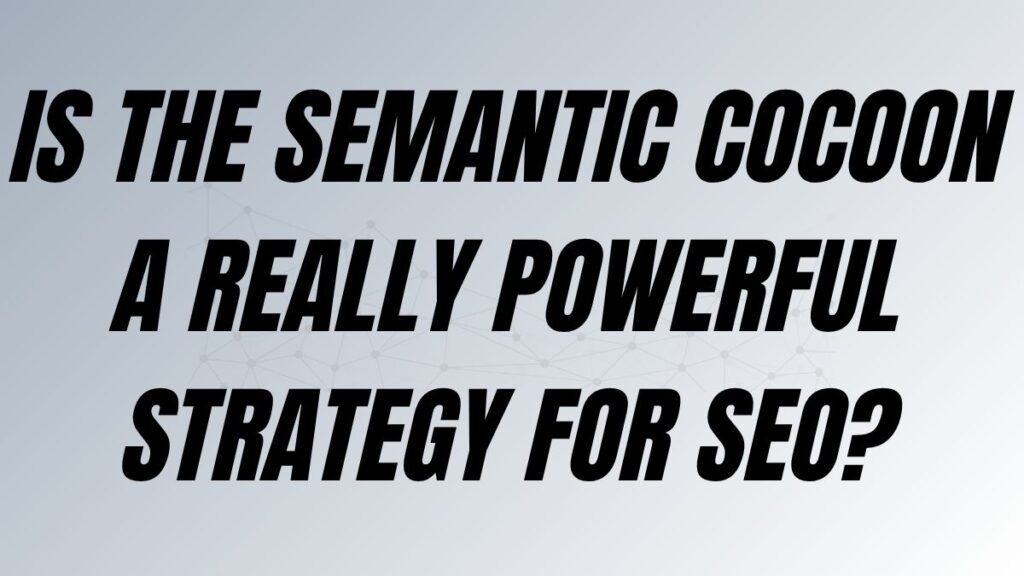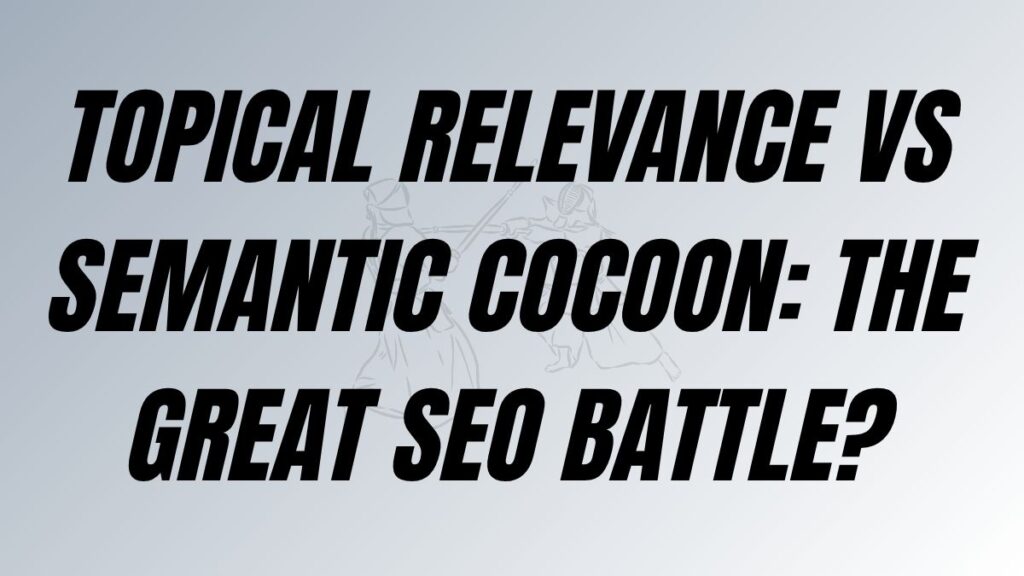Black-Hat tactics remain a tempting shortcut for those seeking quick SEO wins, but the risks have never been higher. In the wake of Google’s March 2024 Core Update, the search engine deindexed over 800 websites and removed 45% of low-quality content from its results, signalling a zero-tolerance policy for manipulation. While legitimate B2B SaaS SEO strategies deliver an average ROI of 702%, black hat practices jeopardize this potential revenue by inviting severe penalties that can permanently erase a domain’s digital footprint.
“The greatest trick the devil ever pulled was convincing the world he didn’t exist,” wrote Charles Baudelaire. The same could be said about Black Hat SEO – its practitioners often operate in shadows, their techniques disguised as “growth hacks” or “advanced strategies.” But make no mistake: search engines have never been more sophisticated at detecting these violations.
Key Takeaways
- Immediate Risk: Google’s March 2024 Core Update demonstrated a zero-tolerance policy, deindexing hundreds of sites and removing 45% of low-quality content.
- Financial Impact: Black hat tactics jeopardize the 702% ROI standard in B2B SaaS SEO, risking total revenue loss for short-term gains.
- Tactical Evolution: As algorithms like SpamBrain evolve, tactics have shifted from simple keyword stuffing to complex AI spam and cloaking, but detection remains high.
- Grey Hat Warning: Techniques like buying expired domains or aggressive link building are increasingly treated as black hat by Google’s AI systems.
- Future Proofing: The only sustainable strategy against SGE and MUM updates is a focus on E-E-A-T (Experience, Expertise, Authoritativeness, Trustworthiness) and user-centric content.
What Exactly Are Black-Hat SEO Tactics?
Black hat SEO involves manipulative techniques like cloaking, link farms, and keyword stuffing that violate Google’s Webmaster Guidelines to inflate rankings artificially, risking severe penalties from SpamBrain.
We name the SEO practices that violate search engine guidelines to manipulate rankings. Unlike White Hat SEO, which focuses on creating value for users while following search engine rules, Black Hat methods prioritize quick wins over sustainable growth.
The term “Black Hat” originates from old Western films where villains typically wore black hats, while heroes wore white ones. This visual shorthand has carried over into the digital marketing world, creating a clear distinction between ethical and unethical practices.

Black-hat SEO refers to a set of aggressive, unethical, and often illicit tactics employed to manipulate search engine rankings. While these methods might offer short-term gains, they invariably lead to severe penalties from search engines, including demotion or complete de-indexing of a website. Understanding these tactics is crucial for anyone involved in digital marketing, not to implement them, but to recognize and resist their allure, safeguarding their website’s long-term health and reputation.
Here’s an elaborated look at some of the most common black-hat SEO practices:
- Link Farms: At its core, a link farm is a network of websites, often of low quality and relevance, created with the sole purpose of linking to a target website. These links are artificial and do not represent genuine endorsements or user interest. Search engines view these as attempts to artificially inflate a site’s popularity and authority. The goal is to deceive search engine algorithms into believing a site is more authoritative than it truly is, thereby boosting its search rankings. However, search engine algorithms are increasingly sophisticated at detecting these unnatural link patterns, and sites participating in link farms are heavily penalized.
- Paid Links: The buying or selling of links for the purpose of manipulating PageRank or search engine results is a direct violation of most search engine guidelines. This encompasses a broad range of activities, including paying for links on other websites (e.g., through advertorials that don’t disclose the paid nature of the link) and accepting payment for placing links on your own site. The intention behind these transactions is to transfer “link juice” and improve SEO, rather than to provide genuine value to users. While some paid links for advertising are acceptable if properly disclosed (e.g., using rel=”nofollow” or rel=”sponsored” attributes), any attempt to disguise a paid link as an organic one is considered black-hat and can lead to penalties.
- Keyword Stuffing: This tactic involves excessively repeating keywords within website content, meta descriptions, alt text, and other on-page elements. The aim is to manipulate search engine algorithms into ranking a page higher for specific keywords. However, this practice significantly degrades the user experience, making content appear unnatural, repetitive, and difficult to read. Modern search engines are designed to identify and penalize keyword stuffing, prioritizing content that is relevant, well-written, and provides value to users. Instead of stuffing, a natural and semantic integration of keywords, along with related terms, is the recommended white-hat approach.
- Cloaking: Cloaking is the deceptive practice of presenting different content or URLs to search engine crawlers than to human users. The motivation is often to rank for keywords that are not truly relevant to the content shown to users, or to hide spammy content from human visitors while still trying to appeal to search engines. For example, a website might show a page filled with keyword-rich, irrelevant text to a search engine bot, while displaying a completely different, perhaps more user-friendly but less SEO-optimized, page to a human visitor. This is a severe violation of search engine guidelines, as it misleads both search engines and users, and typically results in immediate and harsh penalties.
- Hidden Text: Similar to cloaking, hidden text involves placing text on a page that is invisible to users but detectable by search engine crawlers. This can be achieved through various methods, such as using text that is the same color as the background, placing text behind images, using CSS to position text off-screen, or setting font size to zero. The purpose is to stuff keywords onto a page without affecting the visible content or user experience. Like other deceptive tactics, hidden text is easily detected by search engines and is a sure way to incur penalties.
- Duplicate Content: Publishing identical or near-identical content on multiple websites or even on different pages within the same website is considered duplicate content. While not always a malicious black-hat tactic (sometimes it’s accidental), when done intentionally to manipulate search rankings, it falls into this category. Search engines strive to provide unique and valuable content to their users. When they encounter duplicate content, they may struggle to determine which version is the most authoritative, potentially diluting the SEO value across all versions or choosing only one to rank, or even penalizing all instances for attempting to game the system. Original, high-quality content is always preferred for better search engine performance.
Resisting the temptation of black-hat tactics and focusing on ethical, white-hat SEO strategies is paramount for sustainable online success. These include creating high-quality, relevant content, building natural backlinks, optimizing for user experience, and adhering to search engine guidelines.
How Has Black Hat SEO Evolved Over Time?
Tactics shifted from simple keyword stuffing to sophisticated AI content spam and PBNs, countering updates like Google Penguin and the Helpful Content Update which now detect semantic manipulation.
The early days of SEO were like the Wild West – largely unregulated and full of opportunities for those willing to bend the rules. Back then, stuffing keywords into meta tags or creating invisible text could actually work.
Today’s Black Hat practitioners have evolved alongside search algorithms. Their techniques have become more sophisticated, sometimes blurring the line between aggressive optimisation and outright manipulation.
For instance, private blog networks (PBNs) have replaced simple link farms. Instead of obvious keyword stuffing, some now use advanced semantic analysis to hide their manipulation. Content scraping has evolved into “spinning” – rewriting existing content just enough to avoid detection.
Google’s updates have consistently targeted these practices. From Panda and Penguin to more recent core updates, each algorithm change has made Black Hat tactics riskier and less effective.
Why Are Black-Hat Tactics So Harmful to Your Business?
Penalties range from ranking demotions to total de-indexing by Google’s March 2024 Core Update, destroying the 702% average ROI typical of legitimate B2B SaaS SEO strategies.
The appeal of Black Hat tactics is obvious: quick results with minimal effort. But these gains rarely last, and the consequences can be severe.
When caught using Black Hat techniques, websites face:
- Manual penalties from search engines.
- Algorithmic downgrades that suppress organic visibility.
- Complete de-indexing, removing the site from search results entirely.
- Permanent reputation damage with both users and search engines.
- Loss of user trust and revenue.
Consider the cautionary tale of JCPenney, which in 2011 was caught using link schemes to dominate seasonal shopping terms. Google’s response was swift and severe – the retail giant disappeared from top rankings overnight, resulting in significant revenue losses.
The recovery process after a penalty isn’t just difficult – it’s often more time-consuming and expensive than building proper SEO from the start. Some sites never fully recover their previous positions.
What Is Grey Hat SEO and Is It Worth the Risk?
Grey hat SEO tactics, such as buying expired domains or aggressive guest posting, skirt guidelines but risk severe penalties as Google’s AI evolves to detect non-natural patterns.
Between the clear boundaries of White Hat and Black Hat SEO lies a murky territory called Grey Hat SEO. These techniques don’t clearly violate search engine guidelines but aren’t explicitly approved either, operating in a nebulous space where intent and execution often determine their ultimate classification. While they may offer short-term gains, Grey Hat tactics carry inherent risks, as search engine algorithms are constantly evolving to detect and penalize manipulative practices.
Grey Hat practices include:
- Guest posting primarily for links: While guest posting can be a legitimate content marketing strategy to reach new audiences and build brand authority, when the primary motivation shifts to acquiring backlinks for SEO benefit, it moves into Grey Hat territory. This often involves low-quality content published on irrelevant sites, solely to gain a link.
- Buying expired domains for their link equity: Expired domains can sometimes retain a significant amount of “link juice” or authority from their previous life. Acquiring these domains and redirecting them or rebuilding them with new content to funnel that authority to a different site is a Grey Hat tactic. The risk lies in the possibility that the previous domain was penalized or that the new content isn’t truly relevant to the acquired authority.
- Creating content solely for link building: This practice involves generating large volumes of content, often of questionable quality or thin relevance, with the sole purpose of attracting backlinks. This can include creating “link bait” articles, infographics, or tools designed to be shared and linked to, without a strong focus on genuine user value or expertise.
- Slightly over-optimizing anchor text: Anchor text, the visible, clickable text in a hyperlink, is a strong signal to search engines about the linked page’s content. While natural anchor text variation is encouraged, “slightly over-optimizing” involves a disproportionate use of exact-match keywords in anchor text to manipulate rankings, pushing the boundaries of what is considered natural.
- Using automated tools for outreach: While automation can streamline many marketing tasks, using automated tools for mass outreach for link building, especially when personalized communication is neglected, is considered Grey Hat. This can lead to spammy tactics and damage relationships with potential link partners, ultimately harming reputation.
The problem with Grey Hat techniques is that they exist in a constantly shifting landscape. What search engines tolerate today might trigger penalties tomorrow.
Many marketers justify Grey Hat tactics by pointing to competitors who use them successfully. This reasoning ignores the fundamental risk: search engines continuously refine their ability to detect manipulation. What works now might lead to penalties later.
How Can You Spot and Avoid Black Hat Practitioners?
Avoid agencies promising “guaranteed rankings” or “instant results,” often indicators of schemes like link buying which violate Google’s Spam Policies and trigger manual actions.
Before committing to an SEO consultant or agency, it’s crucial to conduct thorough due diligence. Asking the right questions can help you discern between reputable professionals and those who might employ risky tactics.
- “What specific strategies will you use to improve our rankings?” A reliable consultant will provide a detailed plan covering on-page, off-page, and technical SEO. Be wary of vague answers.
- “Can you show me examples of your work and results?” Reputable agencies will share case studies and testimonials.
- “How do you stay current with search engine guidelines?” A credible professional monitors updates like Google’s Core Updates and adapts strategies accordingly.
- “What happens if we receive a penalty?” A transparent consultant will have a protocol for addressing potential penalties, though their goal is to avoid them entirely.
What Questions Should you Ask Potential SEO Partners?
Before committing to an SEO consultant or agency, it’s crucial to conduct thorough due diligence. Asking the right questions can help you discern between reputable professionals and those who might employ risky, “black-hat” tactics. Here are key questions to pose, designed to elicit transparency and demonstrate expertise:
- “What specific strategies will you use to improve our rankings?” A reliable consultant will provide a detailed, customized plan that outlines their approach to on-page SEO (content optimization, technical SEO), off-page SEO (link building, local SEO), and technical SEO (site speed, mobile-friendliness). They should explain how these strategies align with your business goals and target audience. Be wary of vague answers or promises of quick, guaranteed results, as these often signal a reliance on unethical practices.
- “Can you show me examples of your work and results?” Reputable agencies and consultants will be proud to share case studies, client testimonials, and examples of websites they’ve successfully helped improve. Look for tangible results, such as increased organic traffic, higher keyword rankings, and improved conversion rates. They should be able to articulate the challenges they faced and how they overcame them, demonstrating their problem-solving skills and experience across various industries.
- “How do you stay current with search engine guidelines?” Search engine algorithms and guidelines are constantly evolving. A credible SEO professional actively monitors industry news, attends conferences, and participates in ongoing education to stay abreast of the latest changes. They should be able to discuss recent algorithm updates (e.g., Google’s core updates) and explain how they adapt their strategies to maintain compliance and effectiveness. A lack of awareness or a disregard for official guidelines is a major red flag.
- “What metrics do you track beyond rankings?” While rankings are important, they are just one piece of the SEO puzzle. A comprehensive SEO strategy focuses on broader business objectives. Ask about metrics such as organic traffic volume, bounce rate, time on site, conversion rates from organic search, and keyword visibility. They should be able to explain how these metrics contribute to your overall business growth and how they will report on their progress regularly.
- “What happens if we receive a penalty?” Even with the best intentions, unforeseen issues can arise. A transparent consultant will have a clear protocol for addressing potential penalties from search engines, such as manual actions or algorithmic downgrades. They should explain their process for identifying the cause of the penalty, developing a recovery plan, and implementing corrective measures. Their ability to calmly and effectively handle such situations demonstrates their commitment to your long-term success and their experience in navigating complex SEO challenges.
Transparent practitioners will have no trouble answering these questions thoroughly and will take the time to educate you about their approach, empowering you to make an informed decision about your SEO partnership. Their willingness to engage in open dialogue and provide clear explanations is a strong indicator of their integrity and expertise.
Building Sustainable SEO: The White Hat Alternative
Google’s SGE and MUM algorithms prioritize E-E-A-T, rendering manipulation obsolete as search engines understand user intent and content quality like humans, favoring Helpful Content.
The most effective and enduring counter to the allure of Black Hat SEO tactics lies in a deep understanding and consistent application of legitimate, White Hat SEO principles. While Black Hat methods promise quick, often fleeting, gains, sustainable SEO strategies are built on the foundation that genuine value creation, while requiring time and consistent effort, ultimately yields far superior and long-lasting results. It’s a strategic investment in the future of a website, aligning directly with the core objectives of search engines to deliver the best possible user experience.
Sustainable SEO strategies are characterized by their ethical approach and their focus on enriching the user’s journey. These include:
- Creating Genuinely Valuable Content that Addresses User Needs: At the heart of White Hat SEO is content that isn’t just keyword-stuffed, but profoundly useful, informative, entertaining, or inspiring. This means thorough research into audience pain points, questions, and interests, and then crafting content that directly answers or addresses them. Valuable content positions a website as an authority and a trusted resource, fostering user loyalty and encouraging organic sharing.
- Building a Logical Site Structure with Intuitive Navigation: A well-organized website is crucial for both search engine crawlers and human users. A clear, hierarchical structure with logical internal linking ensures that search engines can efficiently discover and index all pages. For users, intuitive navigation—clear menus, breadcrumbs, and internal links—improves their experience, allowing them to find information quickly and effortlessly. This reduces bounce rates and encourages deeper engagement with the site.
- Earning Links Through Relationship Building and Quality Content: Unlike manipulative link schemes, White Hat link building is about earning natural, high-quality backlinks from reputable sources. This is achieved through creating exceptional content that others genuinely want to reference, fostering relationships with other industry professionals, and engaging in legitimate outreach. Earned links serve as powerful endorsements, signaling to search engines that your content is trustworthy and authoritative.
- Optimizing for User Experience (UX) and Site Performance: Search engines increasingly prioritize how users interact with a website. UX optimization encompasses aspects like mobile responsiveness, page loading speed, readability, and ease of interaction. A fast, accessible, and user-friendly website not only keeps visitors happy but also tells search engines that the site provides a positive experience, which is a key ranking factor.
- Developing a Consistent Publishing Schedule: Regular updates and fresh content signal to search engines that a website is active and relevant. A consistent publishing schedule, whether daily, weekly, or monthly, helps maintain topical freshness and provides new opportunities to attract and engage an audience, building a steady flow of organic traffic over time.
- Focusing on Topical Authority Rather Than Individual Keywords: Modern SEO has evolved beyond a narrow focus on singular keywords. Instead, the emphasis is on establishing comprehensive topical authority. This involves creating a cluster of interlinked content around a broad subject, demonstrating deep expertise and covering various facets of a topic. This approach allows search engines to understand the full scope of a website’s knowledge, leading to rankings for a wider array of related long-tail queries and establishing the site as a go-to resource in its niche.
These White Hat approaches are not merely best practices; they are foundational principles that align perfectly with the overarching goals of search engines. Search engines are designed to identify, reward, and promote websites that genuinely serve the needs of their users by providing high-quality, relevant, and accessible information. By committing to these ethical and user-centric strategies, websites can build a robust, resilient, and ultimately more successful online presence that stands the test of time, rather than attempting to circumvent or “game” a constantly evolving system.
What Does the Future Hold for Search and Black Hat SEO?
Google’s SGE and MUM algorithms prioritize E-E-A-T, rendering manipulation obsolete as search engines understand user intent and content quality like humans, favoring Helpful Content.
As search algorithms incorporate more machine learning and AI, they’re becoming increasingly sophisticated at detecting manipulation. Google’s MUM (Multitask Unified Model) updates demonstrate how the search giant is moving toward understanding content more like humans do.
This evolution makes Black Hat tactics progressively less effective and more dangerous. Search engines now consider user behaviour signals, can identify natural language patterns, and recognise content quality in ways that are difficult to manipulate.
The future belongs to brands that focus on creating genuine value rather than looking for shortcuts. As search engines get better at understanding content quality and user intent, the gap between what ranks well and what users actually want continues to narrow.
Conclusion: The Ethical Choice Is Also the Practical One
The allure of Black Hat SEO has always been its promise of quick results with minimal effort. But in 2025’s search landscape, these techniques represent a dangerous gamble with diminishing returns.
Building sustainable search visibility requires patience and consistent quality – there are no shortcuts that don’t eventually become liabilities. The most successful SEO strategies align with search engines’ fundamental goal: connecting users with the most relevant, valuable content for their needs.
When you view SEO as a long-term investment rather than a quick hack, the choice between White Hat and Black Hat approaches becomes both an ethical and practical one. And in almost every case, the ethical choice proves to be the most effective strategy for lasting success.
Disclaimer
This information is for educational purposes only. I do not condone or endorse any black-hat SEO tactics.
FAQs About Black Hat SEO Tactics
How quickly can Google detect Black Hat tactics?
Google’s detection capabilities vary by technique. Some violations, like cloaking or hidden text, can be identified almost immediately through manual reviews or algorithmic checks. Link schemes might take longer to detect but are eventually caught during algorithm updates or manual reviews. With each passing year, detection becomes faster and more sophisticated.
Can a website recover after being penalized for Black Hat SEO?
Yes, recovery is possible, but it’s rarely quick or easy. The process typically involves removing or disavowing problematic links, rewriting manipulative content, submitting reconsideration requests, and rebuilding your site’s reputation. Complete recovery can take months or even years, depending on the severity of the violations.
Are there any Black Hat techniques that still work in 2025?
While some Black Hat practitioners claim their methods still work, the effectiveness of these techniques continues to diminish as search algorithms evolve. Any short-term gains come with increasing risk of penalties. What might “work” briefly today could trigger devastating consequences tomorrow when algorithms update.
How can I report competitors using Black Hat tactics?
Google provides a spam report form where you can report websites violating their guidelines. However, focusing on improving your own site rather than reporting competitors is generally more productive. Search engines continuously work to identify manipulation without relying solely on user reports.




